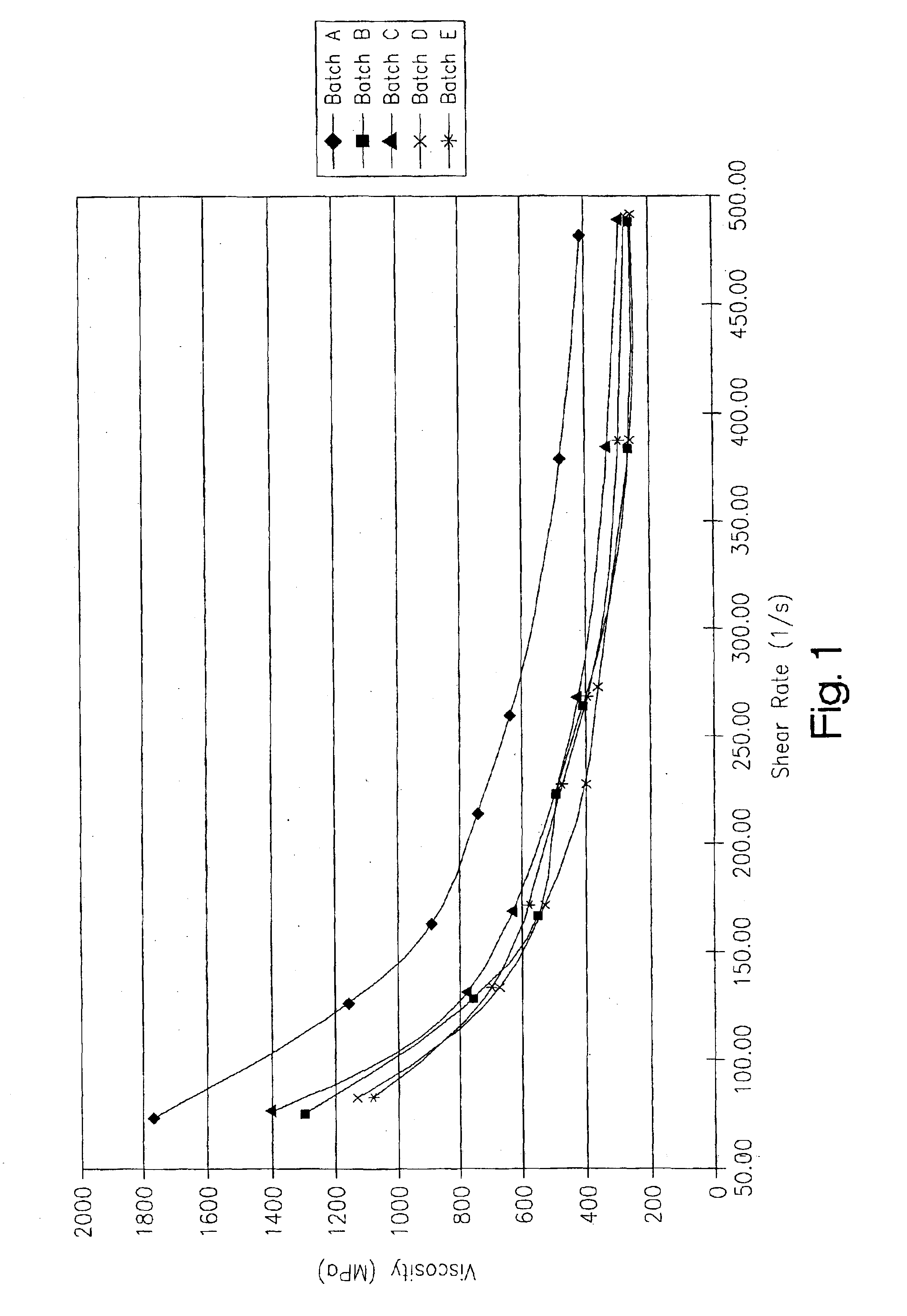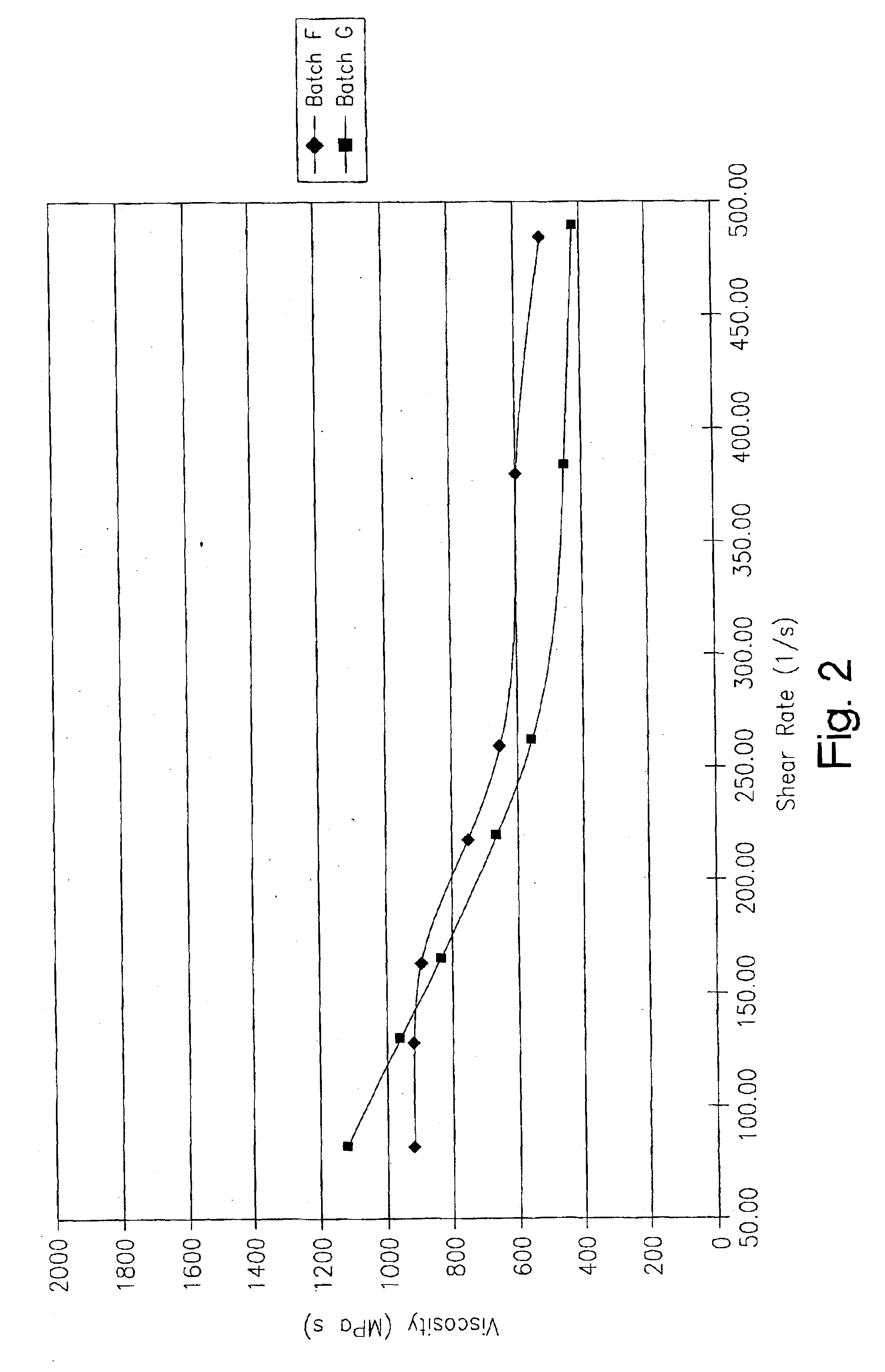Injection-moldable, thermoplastic polyurethane elastomer
a thermoplastic polyurethane and injection molding technology, applied in the direction of coatings, etc., can solve the problems of relatively small injection molding of ppdi-based tpus, and achieve the effect of improving melt flow and injection molding properties
- Summary
- Abstract
- Description
- Claims
- Application Information
AI Technical Summary
Benefits of technology
Problems solved by technology
Method used
Image
Examples
example 1
To demonstrate the improved melt flow and injection moldability properties of the PPDI-based TPU of the present invention, master batches (B-E) were prepared using a poly(caprolactone) diol (CAPA) and select secondary chain extenders, i.e., crystallinity modifiers, added to the formulation at 10% per equivalent weight of 1,4-butane diol (BDO) as the primary chain extender. The formulations of those batches, a control batch (A) having no secondary chain extender, and diphenylmethane diisocyanate (MDI)-based comparative batches (F-G), are summarized in Table 4.
The viscosities of each of the PPDI-based master batches (A-E) were measured at 445.degree. F. (230.degree. C.) as a function of shear rate, and were compared against the response of the control batch formulated with no secondary chain extender. The results, which are graphically depicted in FIG. 1 as plots of viscosity versus shear rate, confirm that melts of the PPDI-based formulations which include a secondary chain extender / ...
example 2
To confirm that the formulations of the present invention retain the preferred performance properties of PPDI-based compositions, the ultimate tensile strength, elongation, 100% and 300% modulus, and compression set of the master batches B-E of Example 1 were measured and compared against the PPDI-based control batch A formulated with no secondary chain extender, and against the MDI-based batches F-G. The results, which are summarized in Table 5 as average values, show that the inventive formulations B-E have performance properties which are comparable to the PPDI-based control formulation A, and which are improved over those of the MDI-based formulations F-G. That is, the improvement in injection moldability is achieved with no degradation in the performance of the elastomer.
PUM
| Property | Measurement | Unit |
|---|---|---|
| diameter | aaaaa | aaaaa |
| diameter | aaaaa | aaaaa |
| crystallization rate | aaaaa | aaaaa |
Abstract
Description
Claims
Application Information
 Login to View More
Login to View More - R&D
- Intellectual Property
- Life Sciences
- Materials
- Tech Scout
- Unparalleled Data Quality
- Higher Quality Content
- 60% Fewer Hallucinations
Browse by: Latest US Patents, China's latest patents, Technical Efficacy Thesaurus, Application Domain, Technology Topic, Popular Technical Reports.
© 2025 PatSnap. All rights reserved.Legal|Privacy policy|Modern Slavery Act Transparency Statement|Sitemap|About US| Contact US: help@patsnap.com


